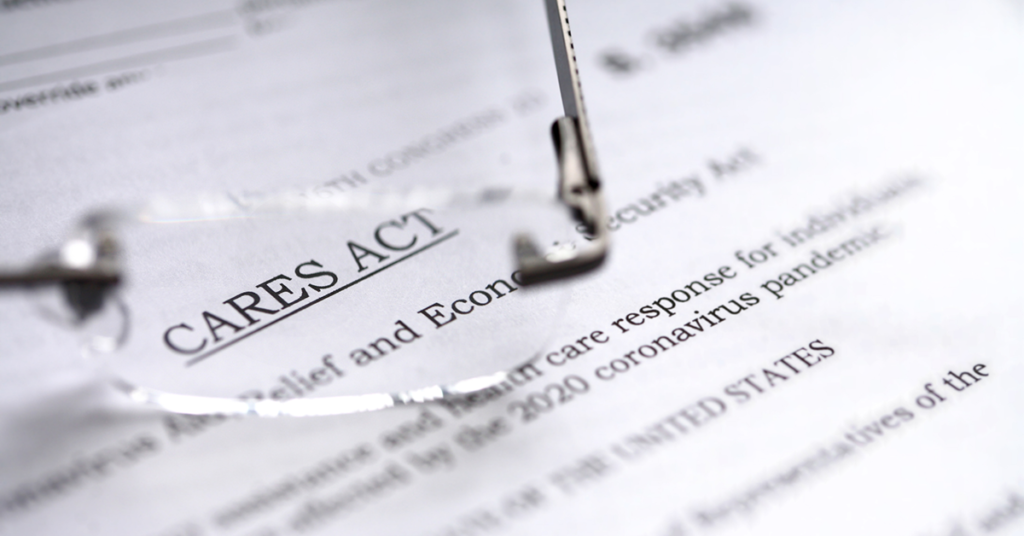
So much has changed in the last month due to the spread of COVID-19 that it may feel like your head is spinning. It seems like every day new relief efforts are being offered to renters, students, small businesses, and homeowners. It’s hard to keep up, let alone figure out if you, as a homeowner, qualify for any of the help the government is offering.
Among those relief efforts is the Coronavirus Aid, Relief, and Economic Security (CARES) Act which was signed into law on Friday, March 27, 2020 by President Trump. According to USA Today, the CARES Act, “gives homeowners with federally backed loans two types of relief.” Through this act homeowners who are unable to pay their mortgage due to COVID-19 related financial troubles may be entitled to foreclosure moratoriums or a mortgage forbearance.
If COVID-19 has caused you financial hardship you may qualify for assistance under this act.WHAT IS A FORECLOSURE MORATORIUM?
A foreclosure moratorium will suspend or stop your lender from foreclosing (taking ownership back) on your property. A foreclosure typically occurs when you are unable to make the required payments on your mortgage. Foreclosure specifics vary by state.
Under the CARES Act, as noted by the Consumer Financial Protection Bureau “your lender or loan servicer may not foreclose on you for 60 days after March 18, 2020. Specifically, the CARES Act prohibits lenders and servicers from beginning a judicial or non-judicial foreclosure against you, or from finalizing a foreclosure judgment or sale, during this period of time.”WHAT IS A MORTGAGE FORBEARANCE?
A mortgage forbearance is when your lender allows you to pause, and sometimes reduce, your mortgage payments for a limited time. A mortgage forbearance does not eliminate your need to repay the missed or reduced payments.
According to the Consumer Financial Protection Bureau, under the CARES Act this means, “You have a right to request a forbearance for up to 180 days. You also have the right to request one extension for another up to 180 days. You must contact your loan servicer to request this forbearance. There will be no additional fees, penalties or additional interest (beyond scheduled amounts) added to your account. You do not need to submit additional documentation to qualify other than your claim to have a pandemic-related financial hardship.”ARE YOU ELIGIBLE?
Protections under the CARES Act are available to homeowners with federally backed mortgages who have encountered pandemic-related financial hardship. The Consumer Financial Protection Bureau states mortgages backed by the following federal agencies will also qualify:
Minnesota Mortgage Association President Roger Kadlec says, “The best thing to do is get in touch with your mortgage servicer to see what your situation is. Or you can also look at your mortgage statement.” Kadlec added that some private banks or credit units are offering similar benefits to their customers at this time.HOW TO REQUEST RELIEF?
The first step to accessing relief through the CARES Act is to contact your loan servicer. You should have the following information ready when you call:
- Your account number.
- A statement explaining why you are unable to make your payment.
- An idea of how long you anticipate not being able to make your payments (temporarily or permanently).
- Details about your income, expenses and other assets, like cash in the bank.
What to do once you receive relief?
Once you’ve qualified for relief, request a written copy of the terms of the agreement. Make sure this document includes, and that you understand, how your missed payments will be repaid when the agreement is over.
- Know when and how repayment is due: Shamus Roller, executive director at National Housing Law Project, a nonprofit legal advocacy center says in a USA Today article “The problem with the CARES Act is that it doesn’t make clear how borrowers pay back the money during a forbearance period.” Some lenders are requiring homeowners to make a balloon payment at the end of the 90-day period, others are putting additional payments onto the backend of the loan. It is essential that your lender is clear with how they expect you to repay the missed payments and that you have those expectations in writing.
- Monitor for errors: Keep an eye on your mortgage statements and credit score to make sure the terms of your agreement are being actioned appropriately.
- Make repayments as soon as possible: If, at any time during your forbearance, your financial situation changes and you are able to begin paying your mortgage again, contact your lender. Even if you find, after paying your other monthly bills, you are left with a bit of extra money, consider putting it toward your repayment because, “With forbearance, you still owe the payments that you missed, but fewer missed payments mean you’ll owe less down the road.”
If you feel you are experiencing financial hardship due to COVID-19 and you are unable to make your mortgage payments, now is the time to reach out to your lender to see if you qualify for relief under the CARES Act.
Related Posts
None found